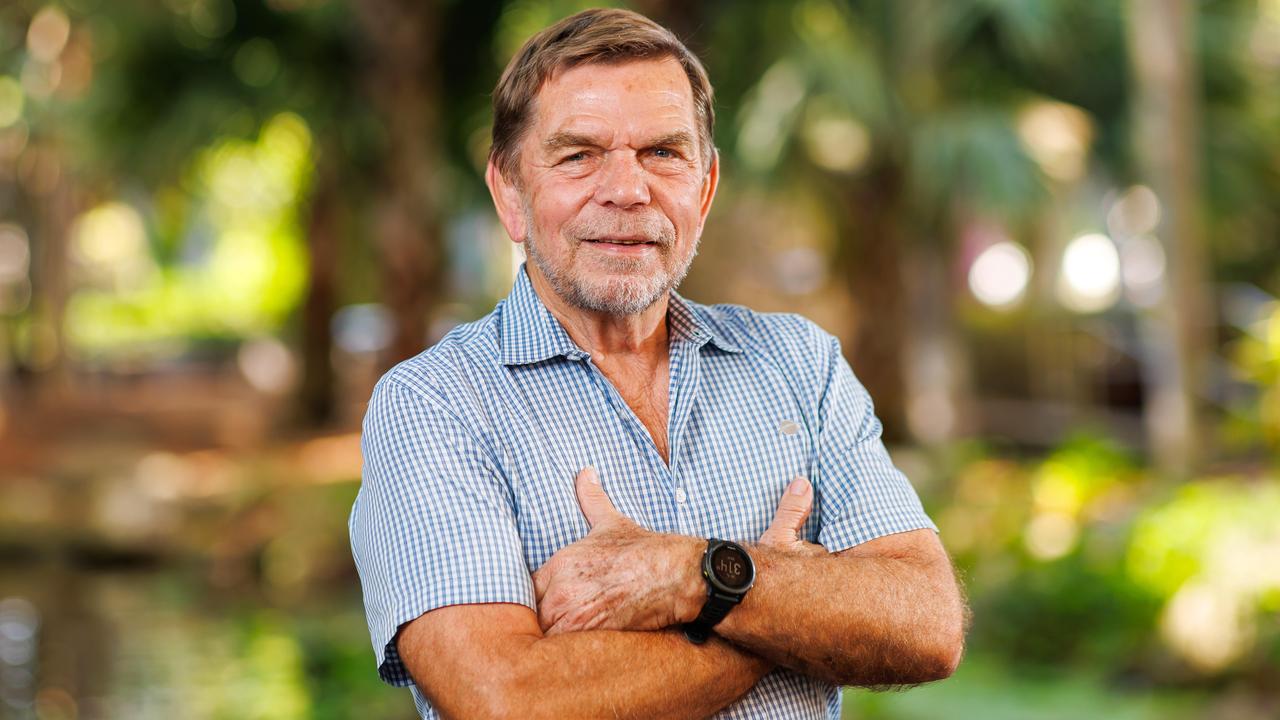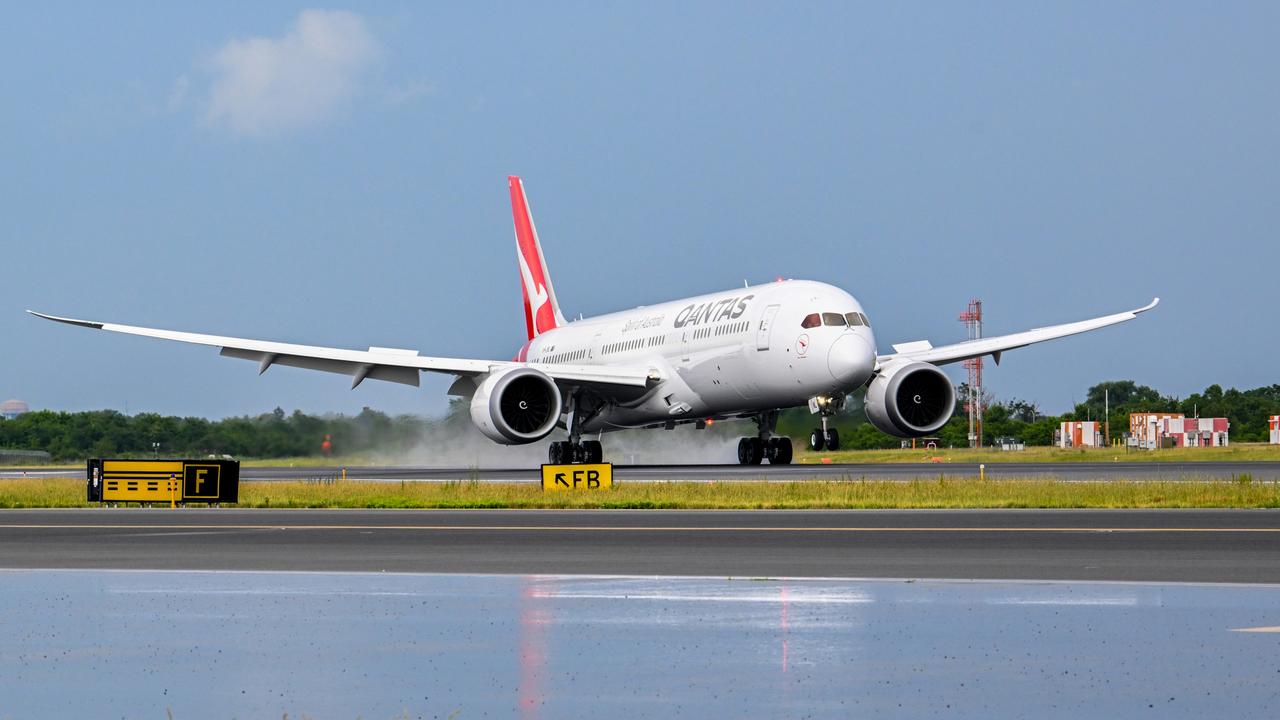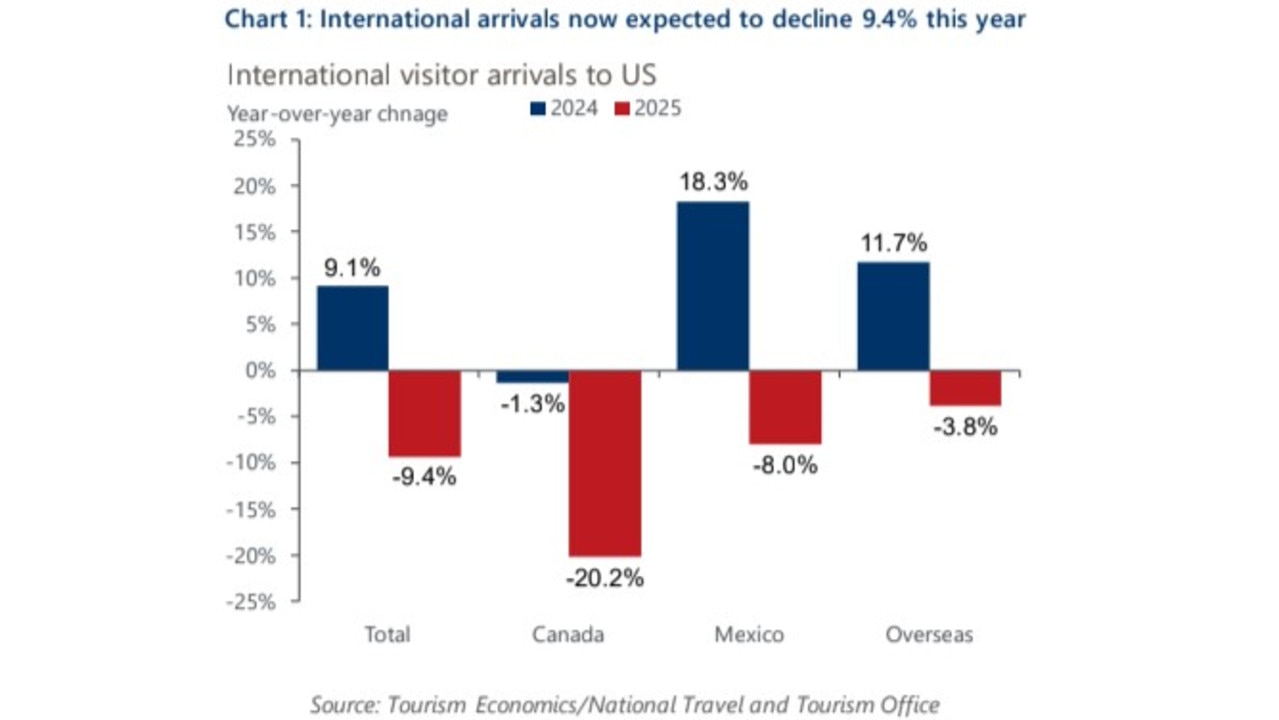‘Don’t like what Donald Trump’s doing’: US travel bookings plummet as Aussies look elsewhere
Australians are choosing to steer clear of Donald Trump, with Aussie businesses revealing travel bookings to the US are plummeting.
Australian travel businesses have seen bookings to the United States drop significantly as Aussies, Canadians and Europeans choose to travel elsewhere amid President Donald Trump’s strict border stance and other controversial government policies like sweeping tariffs.
Experts issuing warnings and cases of tourists being denied entry on arrival (and at times, strip searched and thrown in prison) are spooking travellers.
Flight Centre CEO and founder Graham Turner told news.com.au it was an “unsettled climate” impacting business travel, while tourists worry about passport control and others simply don’t want to go to the US “because they don’t like what Donald Trump’s doing”.
Flight Centre revised its 2025 financial year profit guidance from $365-$405 million to $300-$335 million with Donald Trump’s trade and entry policies being a “significant” contributing factor, and the one major factor that is “outside [their] control”.
Mr Turner said in the first three months of this year, leisure bookings to the US from Australia dropped about 12 to 15 per cent on last year, while business travel remained “on par”.
But April saw an even “further drop” and in the second quarter of the calendar year — April, May and June — the decline is expected to “accelerate” for both leisure and business travel.

“We expect in April, May, June, the corporates will be down significantly, not just because of what’s happening in the States, but because there’s a general feeling of unsettlement in corporate business,” Mr Turner said.
“[When] corporate businesses try to save money, travel is one of the first [expenses] they try to save money on. That’s been happening in the last couple of months and we think it will probably increase in the next month or two.”
Mr Turner said in March and April, bookings in both business and leisure from Canada to the US were down 40 per cent and would “take a while to recover”.
He added that Flight Centre’s European and UK bookings to America were down about 15 to 20 per cent in March and April.
Mr Turner is hoping Australian and global travel will start to recover to the US between July and September — “depending on what Trump does,” acknowledging the negative sentiment was out of the company’s control.
“It depends a lot on what actually happens to these tariffs and that, which obviously we can’t predict,” he said.

As for the strict passport control, Mr Turner advises: “make sure your travel agent checks you and rechecks you” to ensure you have all the appropriate documentation.
“If you’re an Australian passport holder you shouldn’t have a problem … but if you have a different passport, you need to be very careful — Middle Eastern in particular, but other passports out of Australia can be quite problematical,” he warned.
Intrepid Travel, also an Australian-born company that operates globally, told news.com.au US sales for Australian and New Zealand travellers were down 13 per cent between the months of January and April this year, compared to last year. April alone was down 44 per cent on last year.
While Australians have contributed, globally a 9 per cent decline in US sales for the first four months of the year has been driven mostly by the Europe, Middle East and African market (down 26 per cent) and North America market (down 31 per cent).
Brett Mitchell, Intrepid Travel’s managing director for Australia and New Zealand, said their data showed Australians were still choosing to travel, just elsewhere.
South America is “booming”, with sales for trips to Peru up 59 per cent, sales for Chile up 54 per cent and sales for Ecuador up 48 per cent. Further north, Canada is up 9 per cent.
“People aren’t cancelling their holidays, they’re still travelling, just looking at different options,” Mr Mitchell said.
“We’re seeing a real lift in places like South America and Canada, but the US is still an important destination, especially for older Aussies.
“At the same time, more international travellers are choosing Australia, so there’s a real opportunity for us here at home too.”
It appears older Australians are less likely to be deterred by what is happening politically in the US, with this age group actually travelling to the States more on Intrepid trips this year than they did last year.
Trips taken by travellers aged 51 to 60 were up 41 per cent in the first four months of the year, and those aged 61 to 70 were up 59 per cent. Declines in actual travel were sharpest among those aged 31 to 40 (down 18 per cent) and 41 to 50 (down 16 per cent).

March saw the sharpest drop in Australians travelling to the US since during the height of the Covid pandemic, according to US International Trade Administration statistics.
Australian visitor numbers fell 7 per cent in March this year, compared to March 2024 — the biggest drop since March 2021.
Two of Europe’s largest carriers — Air France-KLM and Lufthansa — last week reported a downturn in transatlantic bookings for US-bound flights. However, Australia’s national carrier Qantas says it has yet to see any material demand changes to the US.
The airline acknowledged things can change and confirmed it would watch the situation closely to make changes if needed.
US President Donald Trump rejects the notion that the country’s tourism industry is in any trouble — saying “tourism is way up”.
“We’re doing very well. Wait [un]til you see the real numbers come out in six months from now,” he told American broadcaster ABC when celebrating 100 days in office. “They’re gonna be very good.”

Tourism Economics says foreign traveller arrivals in the US are expected to sharply decline this year.
The travel data company revised its outlook after Donald Trump’s sweeping tariffs announcement on April 2 — forecasting a 9.4 per cent decline in international visitor arrivals.
Their spending is expected to decline 5 per cent, representing a loss of $9 billion in spending.
It is a significantly different 2025 forecast than that released in December, which anticipated a 8.8 per cent growth in international visitation and 16 per cent increase in visitor spending.
Tourism Economics’ report says decisions from the Trump Administration are creating a “negative sentiment shift toward the US among travellers” — with Mr Trump’s stance on border security and immigration one of the factors cited as discouraging visits.
James Robertson, head of global security for the firm International SOS, recently told news.com.au the company’s overall security case folio for the US (people wanting advice before travelling or while already over there) had tripled from January to April, compared to the same period last year.
He said the Los Angeles wildfires were responsible for some of that spike, but so was Mr Trump’s border crackdown.
Melissa Vincenty, a US immigration lawyer and Australian migration agent who is managing director of Worldwide Migration Partners, said her company had seen “a huge drop” in clients wanting to go to the US.
“We handle immigration in both directions. We’ve seen a big drop in inquiries about visas to go the US and a huge uptick in people wanting to come back to Australia and bring their families,” she said last month.
“That’s only happened in the last 60 days. We get hundreds of calls in a month so we can kind of see the trend and that’s absolutely what the trend is.”

Why is American border control spooking foreigners?
US Customs and Border Protection (CBP) have long had strong powers to deny entry, detain and deport foreigners at their discretion when travellers arrive in the country even if they have a valid visa or Electronic System for Travel Authorization (ESTA).
However, what we are seeing under the Trump administration is described as “enhanced vetting”.
Australians are being warned to not assume they are exempt to more intense checks, including inspections of emails, text messages or social media accounts at the airport.
Ms Vincenty explained for Australians who are denied entry to the US, being held in detention facilities until the next available flight home is a real risk as there are not constant return flights to Australia — meaning you might have to wait until the next day.
If not taken to a detention facility, some travellers may stay sitting for hours in what is called a secondary inspection at the airport.
A secondary inspection includes further vetting such as searching a travellers’ electronic devices.
“That period can last from half an hour to 15 hours or more,” she said.
Ms Vincenty warned it was crucial Australians travelling to the US had the correct paperwork for what they were there for, and should “absolutely” wait for the right visa if they planned to work.
“Now more than ever, understand what the parameters are of what you can and can’t do, and don’t try to ‘get around it,’” she said.
“Over the years I’ve had a lot of people get around it and think ‘I’m invincible, I can do whatever I want’. Now is not the time to play that game. Don’t do it.”
Dr Lee Morgenbesser, an associate professor in comparative politics at Griffith University, said in his opinion, Australians planning to go to the US now “need to ask themselves whether their travel is absolutely essential”.
He personally cancelled a business trip for research purposes in July.
“I am somewhat outspoken of the Trump administration,” he said of his reasoning. “It is important what you say about the Trump administration online. It does have a bearing, which is certainly something that’s different to the past.”






